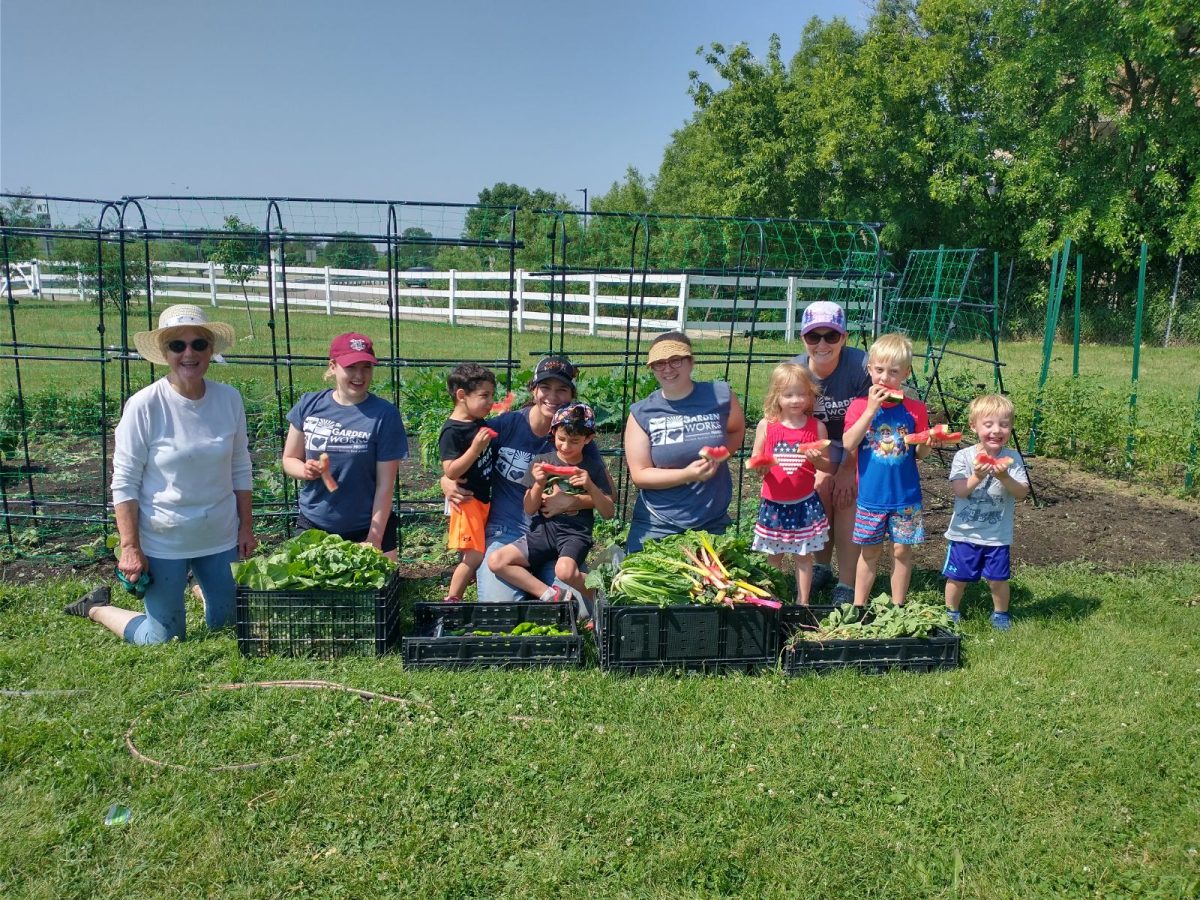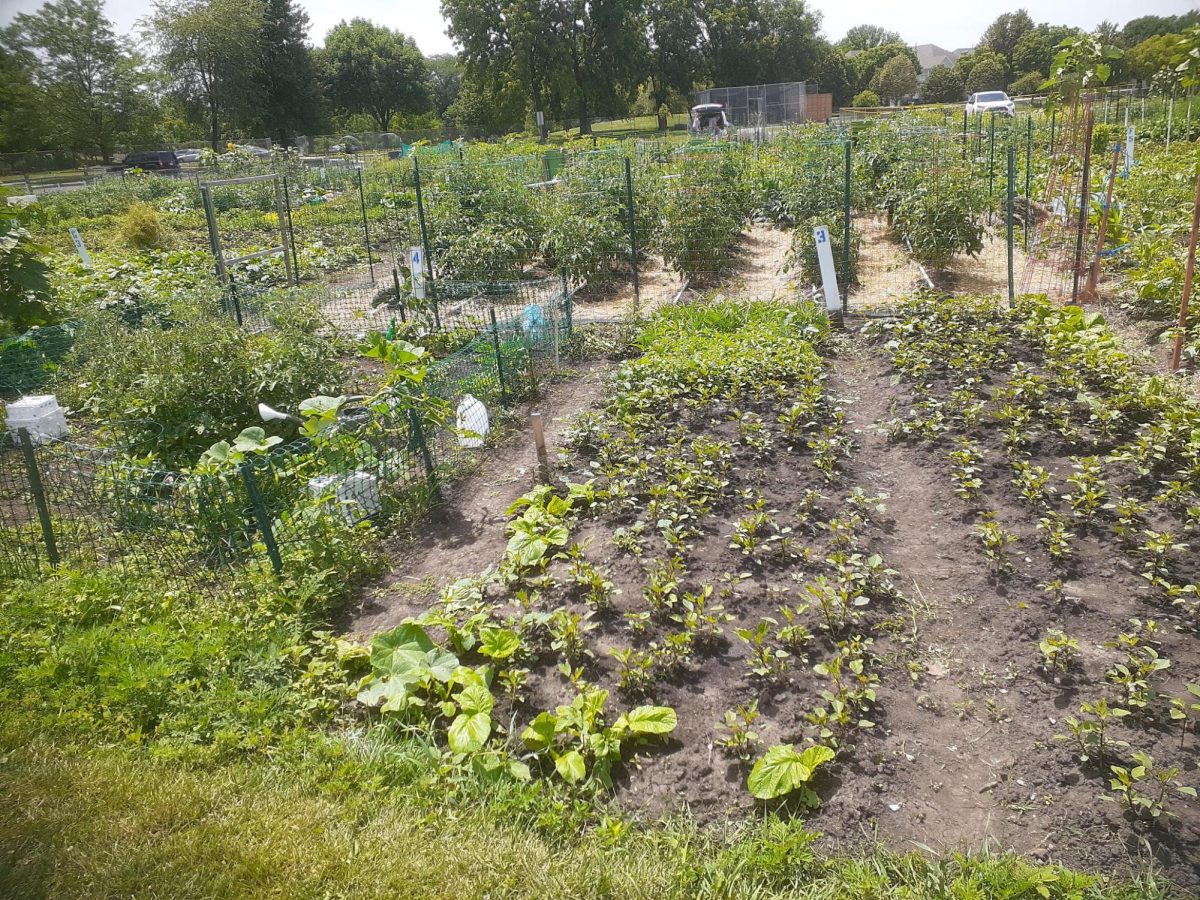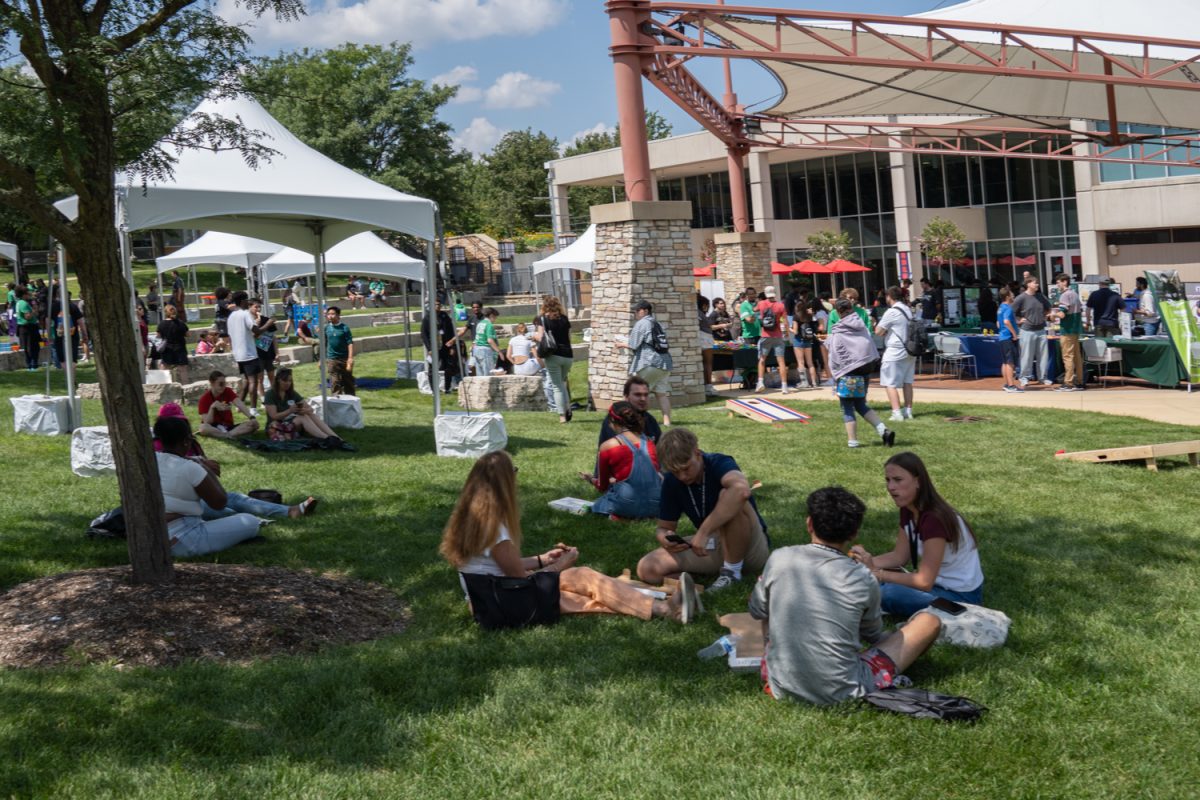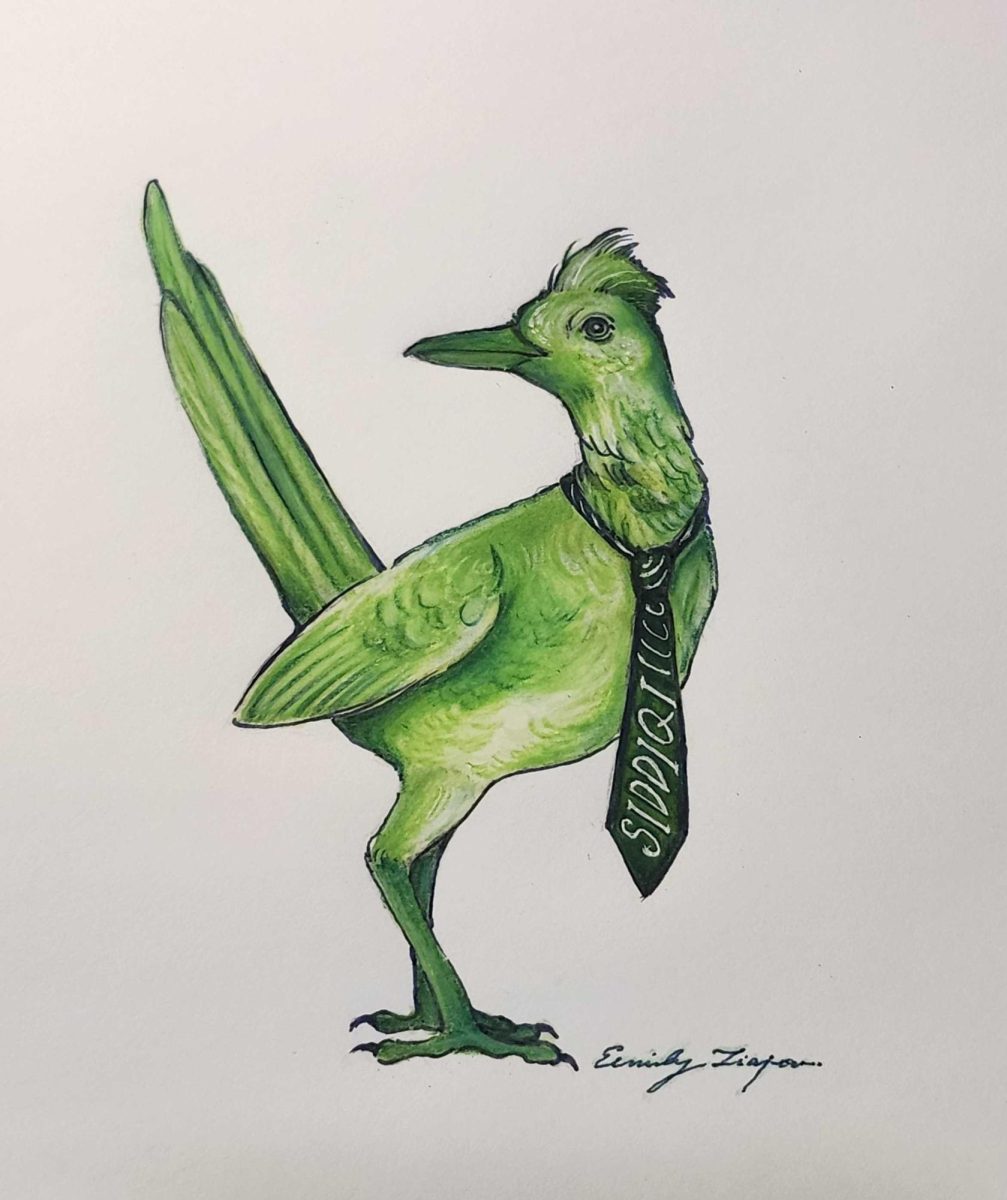Two minutes northwest of COD is Glen Ellyn’s community garden in Village Green Park. Tomatoes, chili peppers, potatoes, cucumber vines and sunflowers bloom in neat rows. The garden, and others like it throughout the area, are a source of affordable fresh produce in a time of skyrocketing grocery prices.
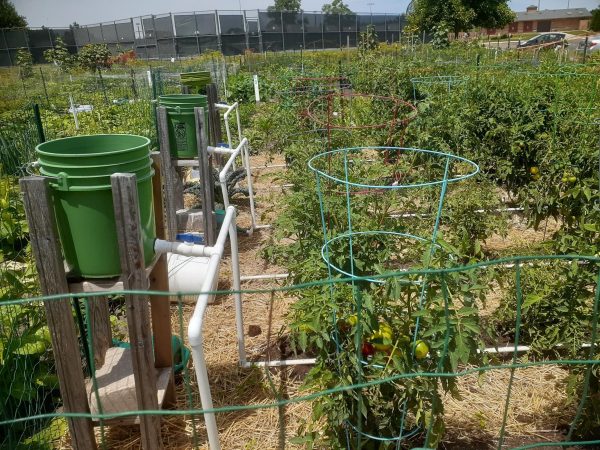
Chris Gutmann, manager of Natural Areas & Outdoor Education at Glen Ellyn Park District, described how the garden is beneficial for families facing food insecurity.
“The community garden plots provide the opportunity to grow a significant amount of crops, supplementing individuals’ or families’ food supplies. These plots also allow gardeners to grow food that’s difficult to find in this area,” Gutmann said.
People can rent the plots from May to October every year, either 10 feet by 10 feet for $20 or 20 feet by 20 feet for $30. Prices move lower for seniors and higher for non-residents. Gardeners must bring all of their plants and equipment like trowels, pots and protective netting, but they do have access to the park’s water faucet system for the plants.
Donations to local food pantries are given from a garden plot owned by the Glen Ellyn Park District, which is gardened by volunteers from the First United Methodist Church. There is a wide network of community garden fresh produce across Illinois, led by non-profit organizations like The GardenWorks Project that encourages organic, suburban agriculture. It donates hundreds of pounds of food each year, as described by Executive Director Teri Woods.
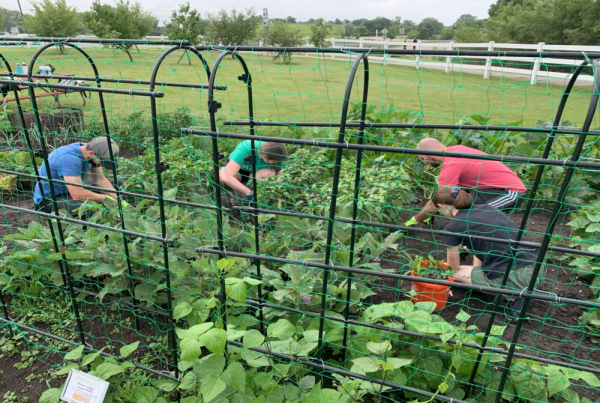
“In 2023, we planted 140 garden beds at 20 locations and served approximately 300 individuals. We estimate that 750 pounds was donated just from the community garden housed at the DuPage County Fair and Events Center in Wheaton,” Woods said. “We visit two farmers markets in Winfield and Elmhurst weekly. Through partnerships with farmers, we pick up produce and deliver to food pantries.”
Pantries all across DuPage County receive GardenWorks’ fresh harvest, even COD’s Fuel Pantry. Others include The Outreach House in Lombard; F.I.S.H. Food Pantry in Downers Grove; Family in Faith in Glendale Heights; Hamdard Health in Addison; Anne M. Jeans School in Willowbrook; and Bensenville Public Library. In mid-July, donations will begin going to Wayne Township Food Pantry and Leman Middle School in West Chicago.
Grant funds from DuPage County helped The GardenWorks Project expand. Woods said support from the local government, public entities and non-profit organizations is paramount.
“This dedication is evident not only from GardenWorks but also from our volunteers, donors, grantors and staff,” Woods said. “DuPage is an exceptional place to work, where the focus is on collaboration rather than competition, with everyone working together to improve the lives of our residents.”
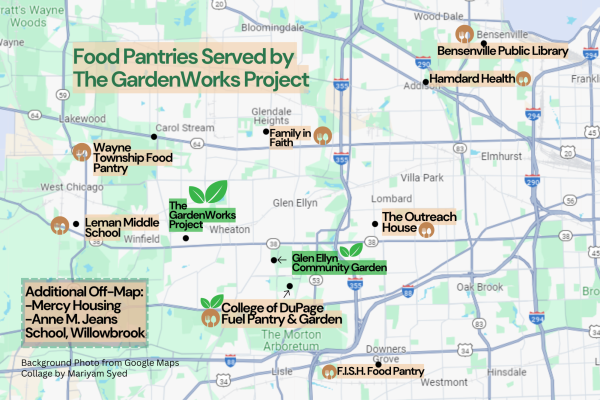
The opportunity to grow food in the community gardens is important, especially as many residential gardeners faced restrictions in prior years. The right to garden in residential yards was enshrined by the Illinois Garden Act passed in July 2021. Gutmann says the Act hasn’t distracted people from community gardens either.
“In fact, interest has surged, leading to waiting lists and plans to add new plots to meet the needs of the community,” Gutmann said. “While the Act protects residents’ rights to private gardens, it seems the popularity of gardening in general has driven the demand for both private and community garden spaces. This increased interest likely reflects a combination of factors, including the pandemic and a growing desire to grow fresh produce locally.”
Grassroots involvement in philanthropic efforts like community gardens and The GardenWork Project is growing exponentially. Woods described her experience joining the organization, as she recently completed her first year as the executive director of The GardenWorks Project.
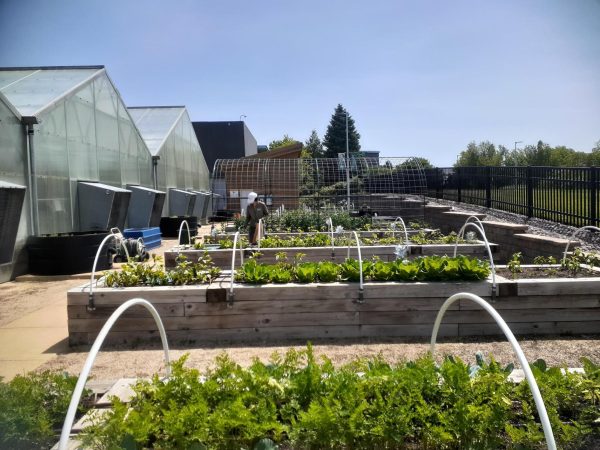
“My connection with the organization began while visiting a local garden store where volunteers had set up an informational table,” Woods said. “Intrigued by the concept of home gardeners growing extra produce for donation to local food pantries, I decided to attend a volunteer kickoff meeting in March 2023.”
There she saw how private gardeners, businesses and donation centers work together to combat food insecurity. Woods was so impassioned by the project she applied for a position a day after the meeting. During the interview, she met the GardenWork Project’s board and learned about its history.
“From its humble beginnings in 2012, when a mom started by building four gardens for families visiting food pantries, to 2024, where we just completed the installation, replanting and expansion of 182 garden beds across 24 locations in the western suburbs, the commitment to improving access to fresh produce has been nonstop,” Woods described proudly.
These efforts survive through the help of volunteers and non-profit groups, with some coming from as far as Ohio to help The GardenWorks Project.
 “During a recent garden build, we had a gardener invite other residents into her apartment because it provided closer access to a water source,” Woods said. “And it’s not just social interaction, because our gardens also provide an educational space where gardeners and volunteers can share information about gardening, best practices and recipes.”
“During a recent garden build, we had a gardener invite other residents into her apartment because it provided closer access to a water source,” Woods said. “And it’s not just social interaction, because our gardens also provide an educational space where gardeners and volunteers can share information about gardening, best practices and recipes.”
Gutmann has also observed how the social interactions through the garden bring the community together.
“Gardeners at the community garden plots are as diverse as the plants they grow,” Gutmann said. “It’s a melting pot, offering opportunities to meet people from various backgrounds and share cultural experiences through gardening.”
The rules of care for the garden are also very conscientious about being respectful to the environment and fellow gardeners. Plants must be well-maintained and prevent large weeds that can spread and overrun other plots. The use of chemical pesticides is also kept to a minimum, and any plant waste can be deposited in a specific compost area. This helps to keep the operation of the garden organized and respectful for all plot owners.
Caring for natural areas like the garden is important for Gutmann’s role in the village, which consists of ecological restoration, public outreach activities, daily maintenance, and planning and design of outdoor spaces.
“Nature dictates our schedule, demanding flexible prioritization reviewed weekly or even daily,” he said. “I must be adept at reading the landscape and interpreting trends and behaviors of flora and fauna. It’s a lot of work, but it’s never dull. Natural areas are not static. Ecosystems are in a constant state of change, as they reach various stages of maturation or recovery. We uncover something new and fascinating in the park district natural areas all the time, and we eagerly share those discoveries with the public.”
Part of this includes promoting the growth of Illinois’ native plants and sustainable vegetables. However, this can be impeded by modern mass agricultural practices.
“In an era where seeds are increasingly patented, individual gardens become one of the
last refuges for people to produce the food they choose,” Gutmann said. “Having mentored under Rowen White, a leader in food sovereignty and security, I learned a powerful lesson: seed-saving and growing your own food is an act of rebellion.”
Competition between locally grown vegetables versus the agriculture industry presents another paradigm of the issue.
“Gardeners can cultivate genetically diverse varieties, creating landraces that adapt to our changing climate,” Gutmann explained. “In contrast, industrial agriculture relies heavily on genetically depleted seeds, ill-equipped for such adaptation. Heirloom varieties hold promise for future food security, and individual gardens are essential for their stewardship.”
Locally grown agriculture creates self-reliant communities, and above all, these gardens feed hungry families.
“Our focus [is] to tackle the critical issue of food insecurity to ensure that all community members have access to nutritious food,” Woods concluded. “A community garden can help individuals facing food insecurity reduce food cost by growing their own food which can allow them to allocate resources to other essential needs.”

The GardenWorks Project uses an app called Fresh Food Connect to track and coordinate donations. Volunteers can join The GardenWorks Project’s Work and Learn events at DuPage County Fairgrounds every Monday from 9 a.m. to 10 a.m. and Thursday from 9:30 a.m. to 10:30 a.m.


